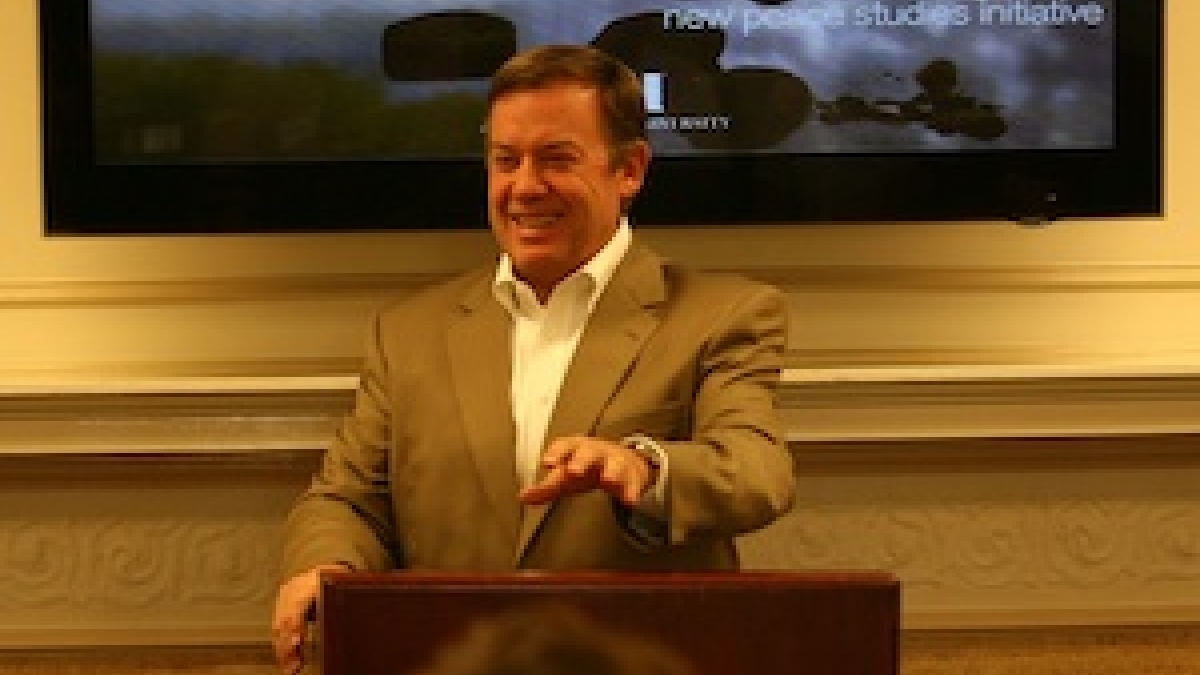Teaching Peace, Center awards grants for new courses

The Center for the Study of Religion and Conflict has awarded grants to three faculty members to develop undergraduate courses in peace studies.
The grants are funded by the Hardt-Nickachos Peace Studies Endowment, which was established within the Center to advance teaching, research and programming in the area of peace studies.
“There are many programs that focus on the practical aspects of conflict resolution and conflict management, but don't necessarily address the challenge of understanding what peace is,” says Yasmin Saikia, the first holder of the Hardt-Nickachos Chair in Peace Studies and professor of history in the School of Historical, Philosophical and Religious Studies, part of the College of Liberal Arts and Sciences.
“Is peace only the absence of violence? What is the experience of humanity in creating peace among groups in the past? How can that help us today?,” says Saikia.
“This initiative was created to engage faculty from a broad range of disciplines in deepening understanding among students about how people, living in diverse societies and cultures, have imagined peace and how they have gone about trying to make it happen,” adds Linell Cady, director of the Center for the Study of Religion and Conflict and Dean’s Distinguished Professor of Religious Studies.
“This will help all of us think more creatively about the possibilities for peace in our own time.”
This was the first call for proposals for new course development under the endowment. Three faculty were awarded grants out of an unexpectedly large pool:
• “Nonviolence and the Civil Rights Movement,” by Keith Miller, a professor in the Department of English, College of Liberal Arts and Sciences. Miller, a leading expert on the rhetoric of Martin Luther King, Jr., will develop a course on the philosophy, language, history and tactics of nonviolence during the civil rights movement, including its on-going impact on international movements and contemporary political theories of non-violence.
• “Peace, Prosperity and Ethnicity,” by David Siroky, assistant professor in the School of Politics and Global Studies, College of Liberal Arts and Sciences. For Siroky, whose research has focused on ethnic conflict and civil war, the course development grant enables him to research and prepare a new syllabus that looks much more deeply at issues of religious-based cooperation and conflict resolution, as well as the economic dimensions of peace, within the field of international relations.
• “Imagining Peace and Non/Violent Transformations,” by Martin Matuštík, Lincoln Professor of Ethics and Religion, Division of Humanities, Arts, and Cultural Studies, New College of Interdisciplinary Arts and Sciences at the West campus. Inspired by the John Lennon Wall in Prague and his own experience in the Velvet Revolution, Matuštík’s course will draw on philosophical and religious ideas, fiction and art, political protest and religious invocations, to explore the political aesthetics and cultural history of peace as a source of hope for, as well as an obstacle to, social transformation.
“We were very excited to see that the call for proposals inspired not only senior faculty who have been thinking about these issues for a long time, but also junior faculty who are just starting their careers and hence in a position to help shape their fields in the future,” Saikia says.
“The fact that the proposals came from faculty representing diverse fields also speaks to the broad interest in this topic.”
The peace studies initiative seeks to explore possibilities for peace expressed in philosophical, religious, social, political and spiritual thought as well as cultural and artistic forms, social movements and institutions, historically and in the present day. Saikia’s own research on the intersection of history, culture and religion mirrors those efforts. She currently directs a project studying children’s learning processes and socialization toward peace and violence in India and Pakistan.
“Courses developed under this initiative will further develop peace studies as an aspect of the center’s Undergraduate Certificate in Religion and Conflict and enhance related initiatives at other centers and campuses,” says Cady.
Written by Nesima Aberra